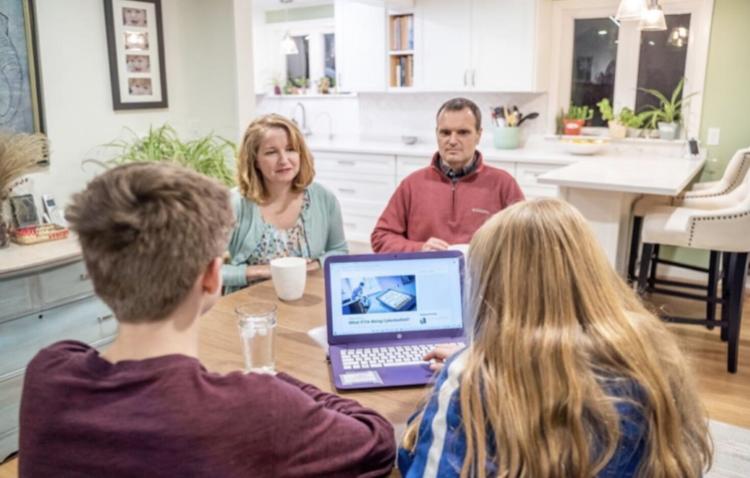While remote learning during the pandemic lowered reported instances of bullying, parents fear that, for some students, being back at school means back to being bullied.

Photo courtesy of Jehovah’s Witnesses
Barak and Yvonne Canzano of Franklin said they are aware of the potential dangers that confront their son and daughter at school, including the threat of cyberbullying.
As parents, they said they have made it their priority to equip their kids to face this challenge successfully and to be available to support them.
“When we had kids, we decided that we would arrange our lives in a way that made it possible for us to spend as much time as we could with them so that we would know what was going on and where they were at emotionally,” Yvonne said.
Technology’s ever-greater presence in children’s lives allows cyberbullies to taunt, harass and threaten relentlessly with just a click. Cyberbullies can at once anonymously reach their victims in their own homes via cellphone or computer. As a result, victims report feeling hopeless, isolated and even suicidal, according to experts. What can parents do to protect their kids? Taking an interest in their children’s online world can make a difference, says the National Parent Teacher Association.
This interest does not necessarily require parents to become tech experts. Instead, the federal stopbullying.gov site advises parents to watch for subtle clues that something is wrong, such as their child becoming withdrawn, hiding their screen when others are nearby or reacting emotionally to what’s happening on their device.
Talking with kids openly — and often — helps, too.
“The more you talk to your children about bullying, the more comfortable they will be telling you if they see or experience it,” UNICEF says in its online tips for parents.
One of the many ways the Canzanos said they foster open communication is by sharing a device-free meal each evening with their children and listening patiently as they freely express themselves.
“As parents, we try not to overreact,” Yvonne said. “We try not to act too upset if they tell us about a situation at school, so they will feel free to continue confiding in us.”
They said they’ve also found that instead of imposing strict rules on their children’s use of devices, they give them principles to think about and apply, drawing on their faith as Jehovah’s Witnesses.
“We try to teach them Bible principles and not just get those principles into their head but also into their heart,” Barak said. “And that way, not only will they know what to do in a cyberbullying situation, they’ll know what to do in any situation.”
One of the families’ go-to resources is jw.org, the official website of Jehovah’s Witnesses. The couple said a series of short, animated videos such as “Be Social Network Smart,” “Who’s in Control — You or Your Devices,” “What’s a Real Friend?” and “Beat a Bully Without Using Your Fists,” were especially helpful.





